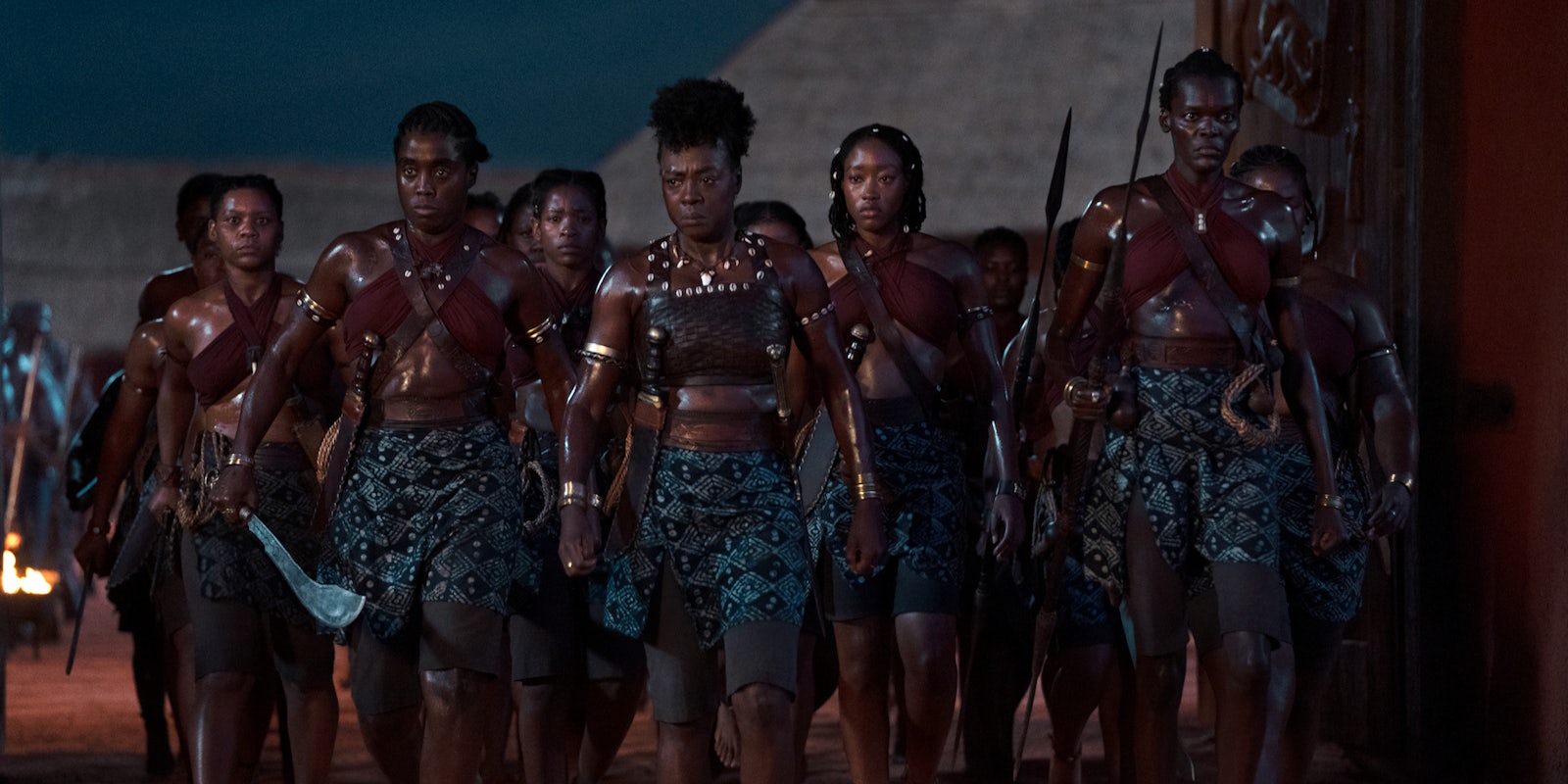
Now Streaming is a weekly column that reviews and analyzes the latest streaming content for you and runs on Wednesdays in the Daily Dot’s web_crawlr newsletter. If you want to get this column a day before we publish it, subscribe to web_crawlr, where you’ll get the daily scoop of internet culture delivered straight to your inbox.
Let us crawl the web for you. Subscribe to web_crawlr here.

Analysis
Released in theaters in September to critical acclaim, The Woman King, Gina Prince-Bythewood’s (The Old Guard) historical epic about the Agojie—the West African kingdom of Dahomey’s (modern-day Benin) all-female military force—starring Viola Davis, Lashana Lynch, Thuso Mbedu, Sheila Atim, made over $94 million worldwide and became a major player in awards season conversations.
Like West Side Story and The Banshees of Inisherin last year, it’s now enjoying a second wave on streaming after arriving on Netflix in the U.S. and India last week. In the former country, it’s taken over the no. 1 spot and debuted in the U.S.’s Top 10, with only the Netflix original rom-com Your Place or Mine ranking above it.
It’s also the kind of movie that would fit right into those star-powered, ’90s throwback action movies that often trend because we love to watch them repeatedly.
It gives you jaw-dropping action scenes as the Agojie fights against both neighboring kingdoms and the Portuguese slave traders in 1823 Dahomey, and the performances, from new Agojie warrior Nawi (Mbedu) to the self-assured veteran Izogie (Lynch) and the pragmatic General Nanisca (Davis), are all top-notch. Dana Stevens’ screenplay and Prince-Bythewood’s direction are confident in introducing viewers to an aspect of West African history previously unknown to most people. Having caught it during its run last fall, I can confirm this movie killed in a theater.
Even with its success at the box office and the critical praise, The Woman King has faced something of an uphill battle.
Early on, it was criticized for downplaying Dahomey’s role in the transatlantic slave trade, to which the film’s cast and crew pointed to the movie as a fictionalized story (and not a documentary), its depiction of a specific time in Dahomey’s history, and how the Agojie’s story has historically been told by their oppressors versus their POV.
While the film got an extensive awards push from Sony Pictures, Prince-Bythewood relayed in an article for The Hollywood Reporter the resistance she met from Academy members, and come Oscar nomination time, The Woman King was completely shut out, with some positing that the last-minute social media campaign in support of To Leslie star Andrea Riseborough came at the cost of Davis’ nomination (or that of Till’s Danielle Deadwyler). Prince-Bythewood categorized it as part of a broader systemic problem with the Academy.
“It’s not a snub,” she wrote. “It’s a reflection of where the Academy stands and the consistent chasm between Black excellence and recognition.”
Why it matters
The Woman King is the kind of movie people have been clamoring for for years. And, if after watching it you’re mad about the Oscars shut out, get right in line.


